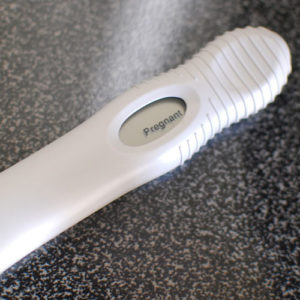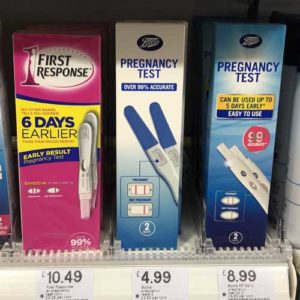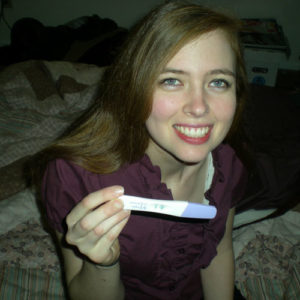If you are trying to conceive a child with your partner, recognising when you ovulate is critical to finding out when you’re most fertile. But there is more to the process than just knowing when you’re ovulating. You also need to know when the best time is to have intercourse in order to conceive.
The Best Time To Make Love After Ovulation?
In order to conceive, it is vital to have intercourse within 5 days of ovulation. Knowing the best time to have intercourse will dramatically increase your chances of getting pregnant.
As one might guess, you are most likely to conceive on the day you ovulate than the days before. However, especially if you’re trying to avoid getting pregnant, you should know that sperm can live for as long as five days inside the woman’s body. This means intercourse as much as five days before ovulation has a good chance of resulting in pregnancy.
Look at Your Lifestyle Too
If you are trying to conceive, it is important to avoid nicotine, alcohol, caffeine and drugs. Talk to your doctor if you are on any prescription medications to be sure they are safe for use during pregnancy. Also talk to your doctor about any over the counter medications you may take. Also, while it is far easier said than done, reducing stress can make conception easier. While there are no guarantees when it comes to conceiving a child, following these guidelines will improve your odds simply by preparing your body to carry a child.
It is also important to maintain a healthy weight and exercise regularly. Being either underweight or overweight can affect your fertility and increase the risk of complications during pregnancy. Talk to your doctor about a healthy weight range for you and a safe exercise plan.
Track Your Basal Body Temperature
The temperature when you first wake up in the morning goes up slightly when you ovulate. It stays slightly raised until your next period. To track it, you should buy a basal body thermometer, which measures the small changes in your body temperature. Take your temperature before you rise out of bed every morning, then take note the first day it goes up. Once you figure out the day you ovulated, you can forecast that ovulation will happen on, or near to, that day in future cycles.
Use Ovulation Tests
Using Ovulation Tests will mean that you know when you are ovulating an the best time to have sex in order to increase your chances of pregnancy. Be aware that you should watch for a rush of hormones as indicated by the first positive result. A positive test indicates that ovulation will occur anytime in the next 72 hours, so this is the best time for intercourse in order to improve your odds of getting pregnant. Some women will take multiple tests and see several positive results, but there really is no point to continuing to test once the first positive result is seen.
Remember that even following these steps to the letter will not guarantee a baby on the first try. Some couples, even healthy couples, can take months or more to conceive. While some couples do conceive quickly, in one or two cycles, if you keep in mind that you may need several attempts to make it happen, you won’t be disappointed if you don’t get a positive pregnancy test in the first cycle of trying.
That said, if you’ve been tracking your ovulation for a year or more and have had intercourse at the right times, and still can’t get pregnant, you may need to see your doctor. Your doctor can test you for any problems that could be hindering your efforts. Finding out what is wrong is the first step toward fixing it and helping you conceive a child.
Taking Ovulation Tests at the Right Time
While ovulation tests can be helpful in detecting your most fertile days, it’s important to use them correctly for accurate results. Many women make the mistake of testing too early in their cycle or not testing frequently enough around their expected ovulation date. Here are some tips for getting the most out of your ovulation tests:
Determine your typical cycle length by tracking your periods for a few months. Most women ovulate around 14 days before their next period, but this can vary. Starting your ovulation tests too early or too late can cause you to miss your fertile window.
Once you have an idea of when you typically ovulate, start testing with your first morning urine around 5-6 days before your estimated ovulation date. The luteinizing hormone (LH) surge that ovulation tests detect can happen up to 2 days before you actually ovulate.
Test once per day, preferably using your first morning urine which has a higher concentration of LH. However, you can test twice per day (morning and evening) around your expected ovulation date for increased accuracy.
Pay close attention to the test results and look for a positive indicating an LH surge. Have sex within 12-36 hours after your first positive result for the highest chances of conception that cycle.
Remember, timing is crucial when using ovulation tests. With proper tracking and testing at the right times, they can significantly boost your odds of conceiving. But no method is 100% accurate, so remain patient and keep trying each cycle.
Photo credit; “Happy Couple” by Anthony Cunningham for Zoom Baby
Zoom Baby is a leading supplier of Pregnancy Tests and Ovulation Test Kits





